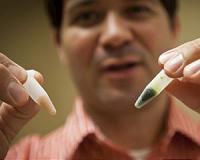 |
Sydney (UPI) May 26, 2011 Biofuels for the aviation sector would slash Australia's reliance on fuel imports by $2 billion a year and decrease greenhouse gas emissions by 17 percent, a new study determined. Conducted by the Commonwealth Scientific and Industrial Research Organization, Australia's national science agency, the "Flight Path to Sustainable Aviation" report suggests Australasian airlines source 5 percent of jet fuel requirements from bio-stock by 2020 and increase it to 40 percent by 2050. With government and industry support, the report's authors say, Australia and New Zealand have the potential to establish a bio-derived fuel industry for aviation. A road map based on the study and launched Wednesday has the backing of Qantas, Virgin Australia and Air New Zealand airlines, along with Airbus and Boeing, Travel Weekly reports. The biofuel scheme would create 12,000 jobs, CSIRO said. "Through the uptake of sustainable bio-derived jet fuel, together with next generation aircraft and engines, the industry can reduce both its emissions and its reliance on imported fossil fuel" the project's leader, CSIRO Energy Transformed Flagship's economist Paul Graham, said in a release. Sources of bio-derived fuels include oil seed trees, algae, stubble from crops and urban waste. Australia and New Zealand have ample biomass resources that can be used without affecting the food supply, CSIRO says. The Australian Broadcasting Corp., in a report with a panel of aviation sector officials, quoted Boeing Australia President Ian Thomas as saying: "Just a few years ago there were many people who believed that it would take decades for us to reach the point where aircraft could fly on such fuels. It is possible for aircraft to fly on bio-derived jet fuel and we proved that." William Lyons, Boeing Australia's general manager added, "We're all satisfied that the fuel is safe and indistinguishable from petroleum derived sources." CSIRO says the global airline sector emits 2 percent of carbon dioxide emissions a year. "Even though that sounds small, the aviation industry acknowledges that it does need to look at reducing its emissions," said Graham. Qantas Airlines is engaged in feasibility studies with two U.S. biofuel companies, The Australian newspaper reports. John Valastro, head of environment for Qantas suggested determining how the government and private sector partners can help the aviation sector in "accelerating some of the more promising opportunities" in biofuels. Merren McArthur of Virgin Australia pointed out that if Australia's proposed carbon price is enacted, there would be offsets for such fuel technologies.
Share This Article With Planet Earth
Related Links Bio Fuel Technology and Application News
 Teaching algae to make fuel
Teaching algae to make fuelBoston MA (SPX) May 26, 2011 Many kinds of algae and cyanobacteria, common water-dwelling microorganisms, are capable of using energy from sunlight to split water molecules and release hydrogen, which holds promise as a clean and carbon-free fuel for the future. One reason this approach hasn't yet been harnessed for fuel production is that under ordinary circumstances, hydrogen production takes a back seat to the production ... read more |
|
| The content herein, unless otherwise known to be public domain, are Copyright 1995-2010 - SpaceDaily. AFP and UPI Wire Stories are copyright Agence France-Presse and United Press International. ESA Portal Reports are copyright European Space Agency. All NASA sourced material is public domain. Additional copyrights may apply in whole or part to other bona fide parties. Advertising does not imply endorsement,agreement or approval of any opinions, statements or information provided by SpaceDaily on any Web page published or hosted by SpaceDaily. Privacy Statement |